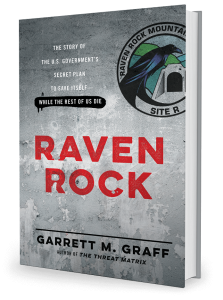Lest any of you are confused, I am not actually a political consultant. I’m a journalist at heart, through-and-through. My father and my grandfather were journalists their entire careers, and it’s been bred in me from my earliest days. I’m hoping eventually to move back into something more writing or journalism-related. It’s what makes me happiest because I’ve long believed that good journalism is one of the most noble professions and public services out there.
The ink in my blood is what made me stand up and cheer last week when Jon Stewart took the established media to task for their lousy fulfillment of their public charge. His reasoned tirade on “Crossfire” last Friday, and all that it represented was perhaps the greatest 20 minutes of television news I’ve seen since Peter Jennings reported from the falling of the Berlin Wall. I feel that in recent days the cogent and righteous media criticism has reached a new level. People are sick and tired of grasping at the sand that passes for journalism in America today.
I had dinner two weeks ago with two esteemed national political reporters and we spent much of the dinner discussing how the level of political discourse has fallen and-relatedly-the sorry state of media-public relations. The bitter partisan debate in this country is second only perhaps to the utter causticness of the war going on right now between the public and the media. Letters to the editors allege outright conspiracies, and blogs attack journalists as if they were the real terrorists (more on that later).
It’s this level of personal animosity that I think is so confusing to so many practicing journalists. There’s a massive disconnect between the readers and the writers. Following in the “proud” tradition of The Daily Howler, sites like the bitter Wilgoren Watch and the hilarious AdamNagourney.com have made hunting reporters a personal sport. While these reporters see themselves following in the footsteps of some of the greatest political journalists-men like Walter Cronkite, Walter Mears, and David Broder (in his younger, less CW-y days), who all set the political agenda with careful analysis during a once-a-day news cycle-too much of the public sees them as lazy hacks at best and apologists for the powerful at worst.
So much has changed. The top reporters of the Murrow-Cronkite-Chancellor-era were players, yes, but not in a public sense. They were bylines on the page, not regular faces on so-called “debate” shows that offer few complete sentences and logic. The Associated Press, for instance, has always prided itself on a certain level of anonymity for its writers, and so I can hardly imagine how Donna Cassada (the AP’s National Political Editor) is dealing with the fact that one of her top reporters, Nedra Pickler, is so infamous for “bad” reporting that the blogs have coined a special term for her hacksterism: Nit Picklerings.
Surely, some of this acidity is just a sign of the times. As anyone observing this cycle knows, this election isn’t normal. It’s personal. The primaries were personal-Dean versus Kerry in a death match, followed by an intensely personal general election that has pitted a flip-flopping caricature against a smirking chimp and Darth Vader. That poison has spilled over into the press criticism, for sure, but I feel that it goes much deeper than that.
People are tired of the professional punditry and conventional wisdom offered on shows like Inside Politics or Crossfire. They’re tired of the fact that the falafel-infested “No Spin Zone” is, in fact, nothing but spin, and that Chris Matthews’ Hardball is nothing more than not-altogether-accurate talking points strung together by partisan hacks. Tom Tomorrow’s cartoon today eviscerated the media for how it inflates and distorts our political discourse.
It’s a long-parried indictment that journalists get lost in process because it’s easier to cover than issues. Does anyone really think that the Mary Cheney comment in the debate is a bigger deal than the war on terror, the war in Iraq, the economy, jobs, and health care? I have friends who can’t afford health care coverage they badly need; I have friends serving in Iraq; I have friends who have lost their jobs as the economy as teetered over the past four years. None of them care about Mary Cheney’s sexuality, her parents’ imparted shame, or Kerry’s alleged malicousness. IT DOESN’T MATTER, FOLKS! Everyone recognizes that it’s not a real debate, but the media still covers it as if it’s the second coming of the Dean Scream (and don’t get me started on things that didn’t matter about real issues).
It’s this whole anger-at-an-establishment-that-provides-window-dressing-in-place-of-answers mindset that Dean tapped by pointing out that Congress passed a Patient’s Bill of Rights that failed to extend health care to a SINGLE American. That’s not leadership, and we deserve better than that from the 535 men and women we’ve chosen to determine the future of the country. Likewise, Mary Cheney is not a real debate or a meaningful issue, but the press loves it because it’s easy and makes for good talk and idle banter-which is what fills hours of the day on cable news, and thus, in turn, drives the print coverage.
People are, as Jon Stewart alluded to, hungry for something better. Perhaps even real leadership, real debate, and real answers:
STEWART: Here’s just what I wanted to tell you guys.
CARLSON: Yes.
STEWART: Stop.
[LAUGHTER] STEWART: Stop, stop, stop, stop hurting America…. And come work for us, because we, as the people…
CARLSON: How do you pay?
STEWART: The people — not well.
[LAUGHTER] BEGALA: Better than CNN, I’m sure.
STEWART: But you can sleep at night.
[LAUGHTER] STEWART: See, the thing is, we need your help. Right now, you’re helping the politicians and the corporations. And we’re left out there to mow our lawns.
….
BEGALA: Let me get this straight. If the indictment is — if the indictment is — and I have seen you say this — that…
STEWART: Yes.
BEGALA: And that CROSSFIRE reduces everything, as I said in the intro, to left, right, black, white.
STEWART: Yes.
BEGALA: Well, it’s because, see, we’re a debate show.
STEWART: No, no, no, no, that would be great.
BEGALA: It’s like saying The Weather Channel reduces everything to a storm front.
STEWART: I would love to see a debate show.
There was twenty minutes of them bantering back and forth. Stewart barely was able to finish a sentence, and Carlson and Begala both made his point for him better than he could have himself: There was no civilized discourse or debate on the show. They came at him with nonsense, and he came back at them with attempts at reason. His bottom line:
STEWART: You have a responsibility to the public discourse, and you fail miserably.
Washington Post Media Critic Howard Kurtz (himself no favorite of the blogs) touched on this issue in one sense today, by examining the common media phenomenon of giving both sides equal criticism without trying to impose any sense of moral judgment:
“Your instinct is that if we say bad things about one side you have to say bad things about the other side,” says Adam Nagourney, the New York Times’s chief political reporter.
….
At issue is how far reporters should go in analyzing the candidates’ attacks and ads, especially if one side is using a howitzer and the other a popgun.
We did this all the time in my college newspaper. You cover a speech, you find one person who liked it, one person who didn’t, and you called it a day. That’s lazy journalism. But that’s exactly what we’re seeing from our media today. Bush says that there’s no WMD in Iraq, and the press feels obligated to say that Kerry is saying the war has cost less than he says it has. Those are not equivalent lies or deceptions. But in its attempts to impose “balance,” the press feels like it should treat both the same. We expect more.
What we’re seeing isn’t honest journalism from our nation’s scribes, but instead what they think could perhaps pass as honest journalism. It’s the difference between a diamond ring and cubic zirconia. They may look the same, but you know one is worthwhile, and one’s just pretty. Readers are cluing into this. They’re demanding more. We want a higher standard in journalism. We want believable information, and we want people held accountable for what they say. For instance, in one of his few worthwhile endeavors this year, Daniel Okrent and others have made a point this year of trying to hone in on the cheap use of anonymous sources in political stories.
We’re asking journalists to be less lazy-both intellectually and professionally. Considering how journalists write for a living, they can be remarkably casual with phrasing, writing almost in short-hand that makes sense to them. Words matter. Phrasing matters. Language is the most potent weapon available, and journalists-especially political journalists and commentators-swing it too carelessly. I carry around a beautiful pen, given as a present by Nicco, that says “The Pen is Mightier Than the Sword.” It always has been, and it always will be.
We realize that the Protector of the Pen in today’s society has lost sight of the public trust they’ve been given. What the established media doesn’t understand is that it’s precisely that same frustration that has given rise to blogs, and caused so many people to drop out of the established media world-turning online in the hopes of seeing real issues and real debates.
In a way, perhaps the blogs are right to go after journalists as if they were terrorists.
Lazy journalism will ultimately do more damage to America than Islamist terrorists could ever do. The Freedom of the Press is perhaps the greatest freedom America has to offer. It is, simply put, the engine that ensures the protection of all the others. It is up to articulate, thoughtful, and industrious journalists to hold our nation’s power brokers accountable and to tell us when our government is failing us. We count on the media to hold in check corporate conglomerates and deceitful politicians, and to defend us against foes working against American ideals from the inside. Being a good journalist is about fighting for the little guy. Look at Upton Sinclair, Jacob Riis, or any of the other muckrakers, or go watch a Frank Capra movie. If you can’t fight for the little guy anymore-the American people, that is-get the hell out of the way.
This is our demand of every journalist from Bill Keller at the New York Times to the editor of the smallest small-town weekly. You have an obligation to our country to defend our way of life. And you are failing it miserably.
So here’s Jon Stewart’s charge to Begala/Carlson and everyone else in that establishment media: If you can’t stand the heat, if you can’t come work for the people, please stand aside so we can find someone who will. Your jobs are too important to take lightly. Reporting on politics isn’t a game for the best rejoinder.
We need a Fourth Estate worthy of that illustrious name. Please.



Recent Comments